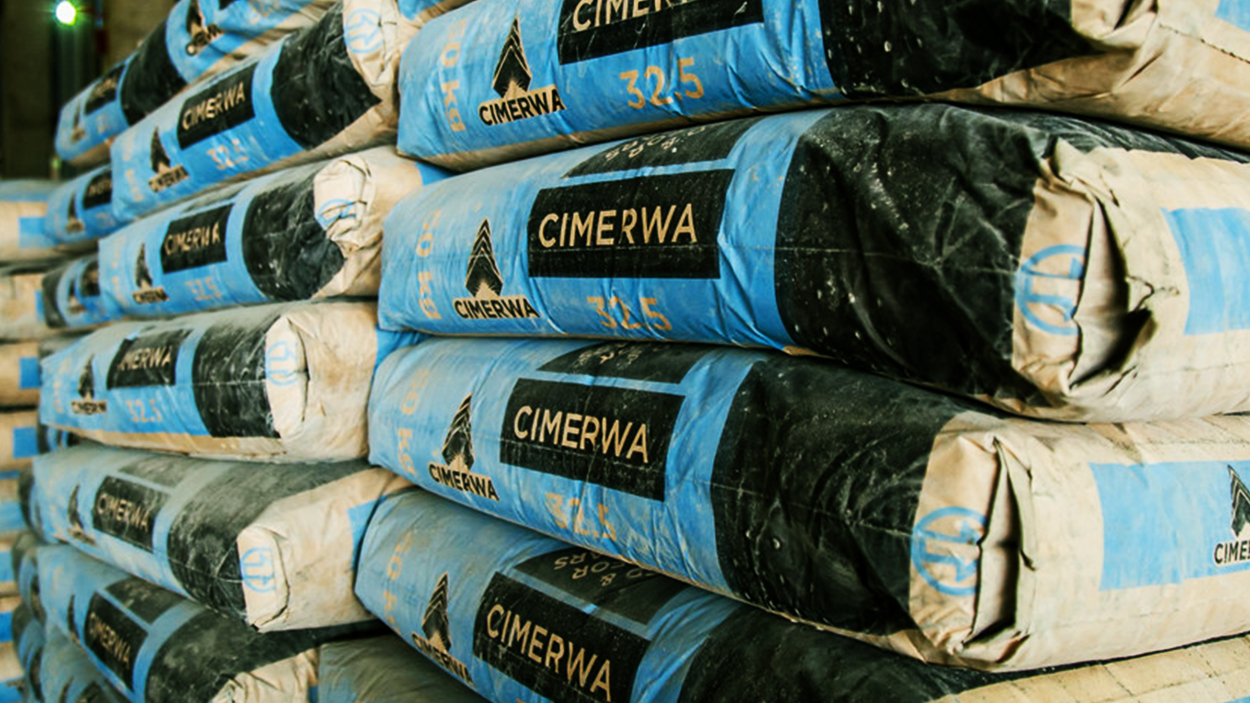Could CIMERWA Reclaim Monopoly in Rwanda's Cement Market with PRIME Acquisition?

Inside a CIMERWA warehouse in Rusizi District. PHOTO: Courtesy/ Internet
Newly acquired CIMERWA Plc has completed the acquisition of Prime Cement, a move described by the company as an ‘off-market transaction.’ With this acquisition, CIMERWA, which was just months ago acquired by Kenya’s National Cement Company (part of Devki Group Conglomerate), will take over all of Prime Cement's assets, committing to ensuring cement sovereignty in Rwanda.
CIMERWA’s annual production capacity has been registered at 600,000 metric tonnes of cement annually, making it one of the dominant players. This will undoubtedly increase.
However, the company’s strategic acquisition of Prime Cement could raise significant questions about Rwanda's competitive landscape in the cement industry. For years, CIMERWA had dominated the Rwandan market. Prime Cement's entry in recent years brought a sense of competition, promising consumers better prices and a more diversified market.
Until its buyout, Prime Cement was a 100 per cent subsidiary of Milbridge Holding SA, which owned a $65m infrastructure in Musanze district and began production in September 2020. The presence of Prime Cement (with an annual production capacity of 600,000 tonnes) offered an alternative for builders and contractors, breaking the near-monopoly held by CIMERWA.
Last year, the market introduced Anjia Cement, which invested about $100m in Muhanga as the country’s third cement manufacturing firm. According to media reports by last year, Anjia claimed to be manufacturing 2,255 tonnes daily, boosting the country’s demand, estimated to be between 750,000 and 950,000 tonnes annually against the domestic supply of 420,000 tonnes. The demand for cement in Rwanda, driven by the public and private sectors, is projected to keep rising with urbanisation.
The acquisition of Prime Cement by CIMERWA could shift the market back to a dominant player and spark concerns among industry stakeholders and consumers alike.
The term 'monopoly' often carries negative connotations, particularly in industries critical to national development, such as cement manufacturing. A monopolistic market can lead to higher prices, reduced innovation, and less incentive for the monopolist to improve efficiency or customer service.
With CIMERWA's acquisition of Prime Cement, what real risks could the Rwandan market face? CIMERWA’s commitment to ensuring cement sovereignty in Rwanda is commendable, particularly in light of the country's ambitious infrastructure projects.
Yet, the recent trends in the competition could hinder market dynamics that benefit consumers. A monopolistic or competitively unbalanced market might see prices stabilise at higher levels, impacting the cost of construction.
Rwanda is the only EAC country with strong demand growth and a supply gap, while the rest struggle with overcapacity amid slowed demand. The Rwandan market is highly contested as an export market, with players in Tanzania and Uganda taking the majority share. The border issue between Uganda and Rwanda reduced cement imports from Uganda, which were significantly replaced by imports from Tanzania.
Rwanda's regulatory bodies will be crucial in this new market structure. They must ensure that CIMERWA's dominance does not translate into exploitative practices or stifled competition.
From a consumer perspective, Prime Cement’s acquisition brings potential benefits and drawbacks. Conversely, CIMERWA’s consolidated resources might lead to better production efficiencies. However, without any competitive pressure, there’s less incentive for CIMERWA to pass these efficiencies on to consumers through lower prices.
READ RELATED ARTICLE:
A 10-point timeline of facts you need to know about the cement industry in Rwanda
CONNECT WITH US:
Twitter/ X: @Afro_Insights
Instagram: @bizinsightsafrica


